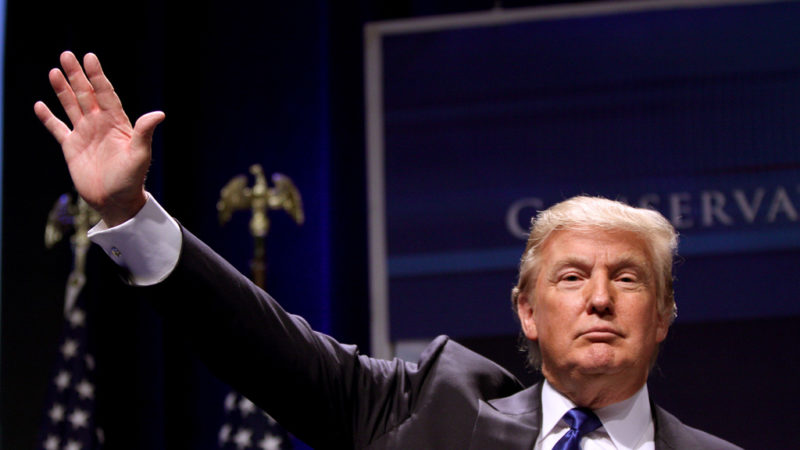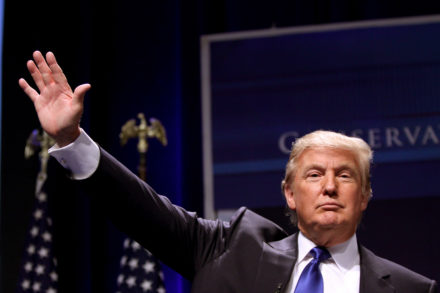

Much of the world has rightly reacted in horror to Donald Trump’s election as president of the US.
Trump’s victory is terrifying for many – particularly women, people of colour and minorities who were vilified by his bigoted campaign. Hate crimes are feared to rise, as they did after the EU referendum in the UK. A Republican-controlled House, Senate and a vacant seat on the Supreme Court limit checks and balances, allowing Trump free reign to enact the nasty, regressive policies pledged during his campaign.
To fully understand how Trump won, we have to look at the collapse in centrism that has taken place since the 2008 financial crisis and the rejection of the neoliberal consensus that has dominated global politics for over 30 years.
Both the Brexit vote in the UK and Trump’s election in the US reflect the anti-establishment feeling sweeping the western world – a backlash from the people neglected by the global economic system and political elites for far too long.
Over the last three decades, wealth in the US has been swept up by the few at the top while huge parts of the world’s most powerful economy have been left to rot. After 2008, this has worsened further. The majority of people have suffered from stagnating or declining living standards and faced increased poverty and hardship. By 2015, the top 10 per cent owned half the wealth – by some estimates the biggest gap in US history.
As Jeremy Corbyn said yesterday, Trump’s election represents “a rejection of a failed economic consensus and a governing elite that has been seen not to have listened.” It would be easy to see the rising tide of fascism and think that attempts to provide a positive alternative for society are futile – but it is needed now more than ever.
The elitist liberal centre has collapsed. The injustice of our current system, and the failure of political parties to sufficiently address it, has left a void. Trump has profited from these hardships – it is time for us to put forward the alternative vision that the status quo is unable to provide.
So what should we do now? We must continue to condemn hate and discrimination, and fill the vacuum left by the collapse of centrism with our positive vision for a fair society. Unless we act to put forward a bold alternative, the vacuum will continue to be filled by the far right, who use it to scapegoat migrants, refugees and ethnic minorities.
We must unite to put forward a new economic programme that rejects the neo-liberal consensus that has pushed people to seek an alternative. We must organise with communities to demand a fair society – free from hate, inequality and injustice. Our policy platform must centre on the redistribution of wealth, investment in infrastructure and equality for all.
Now is not the time for defeatism, it is time to organise around our shared values to reject the hate and division being promoted by the far-right.
On Wednesday morning, hate was given hope. Now, more than ever, is the time for the politics we have been seeking to promote – a politics that empowers, and leaves no one behind.
Faduma Hassan is a organiser for Momentum




More from LabourList
‘As metro mayors gain power, Labour must tighten political accountability’
Letters to the Editor – week ending 22 February 2026
‘The coastal towns where young people have been left behind by Whitehall’